Iran Reiterates A Nuclear Deal Is Very Close If West Shows Flexibility
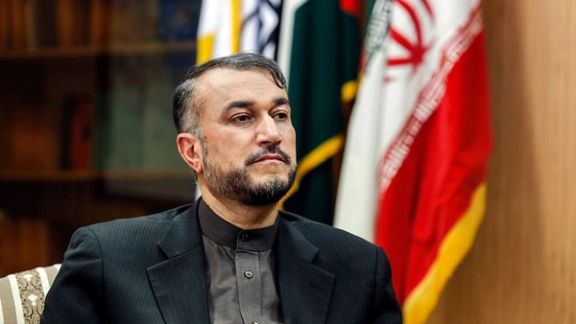
Iran says it has showed flexibility and seriousness in talks with the West over its nuclear policy, now it is time to see initiatives and flexibility in return.

Iran says it has showed flexibility and seriousness in talks with the West over its nuclear policy, now it is time to see initiatives and flexibility in return.
In an interview with Euronews on Tuesday, Hossein Amir-Abdollahian said the agreement could be reached in a matter of hours, but also warned again that some of Iran’s “red lines” remained, reiterating that “We’ve never been so close to such a deal”.
When asked to explain about Iran’s “seriousness and initiatives” at the Vienna Talks, Amir-Abdollahian, said, “we need to make sure there’s harmony between how we’re negotiating in Vienna and the realistic approach of Dr. Raisi’s government”.
“We do not believe that Iran is an isolated country. Unilateral and unlawful US sanctions have led to some problems for us. Inaction since 2015, especially from three European countries…has caused some problems for Iran. But despite all their efforts…the isolation of Iran hasn’t happened”, he added.
Commenting on the issue of a prisoner swap with the West, he described the dual-nationals held by Iran as spies, saying, “We’ve announced that we’re ready, either outside the Vienna talks or alongside them, to exchange prisoners when the other side is ready. We consider this to be a 100% humanitarian issue. We don’t see any necessity to link this humanitarian dossier to the Vienna Talks.”
Iran has arrested several Westerners and dual citizens of Iranian descent on trumped-up charges, described by international human rights organizations as hostage taking.
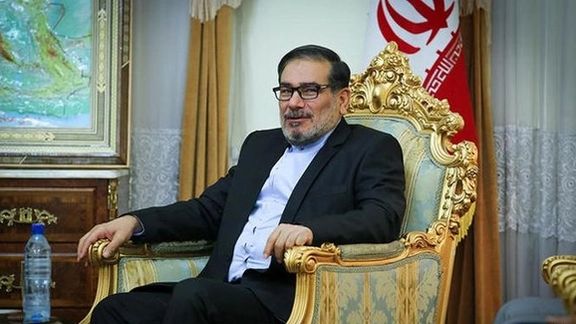
Iran's top security official says Tehran’s “peaceful” nuclear capabilities must always remain like “sword of Damocles” above the heads of the violators of the JCPOA.
The secretary of Iran’s Supreme National Security Council, Ali Shamkhani, made the remarks on Tuesday as top diplomats engaged in the Vienna talks say the negotiations are nearing the finish line.
“Peaceful capability of Iran's nuclear program must always remain like the sword of Damocles above the heads of violators as a real guarantee for fulfillment of their obligations”, Shamkhani tweeted.
“After US withdrawal from JCPOA in 2018, it was better to use this inherent guarantee more effectively”, he added in a tweet.
Shamkhani’s contradictory remark about “peaceful capability” and a “sword” might be referring to Iran’s advanced knowledge of uranium enrichment and its possession of thousands of enrichment machines called centrifuges.
It is not clear if the imminent agreement in Vienna would address Iran’s enrichment infrastructure and the stockpile of refined fissile materials it has built ap in over a year.
Shamkhani has been sounding negative about the negotiations in recent days and insisting on the removal of all sanctions imposed since 2018 when former US president Donald Trump left the JCPOA.
Last week, he said the United States and its European allies have failed to live up to their commitments under the 2015 deal, rendering the JCPOA an empty shell, noting that Iran has not reaped any economic benefit from the agreement.
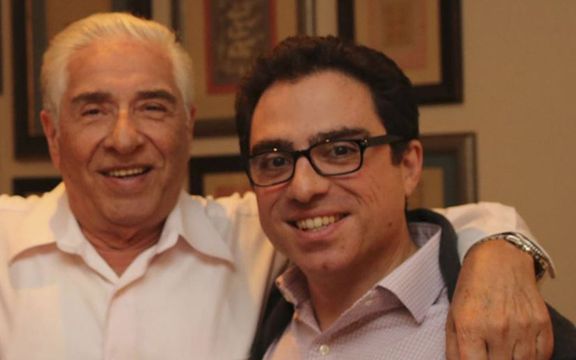
Reuters news agency reported Tuesday that sources “close to the negotiations” in nuclear talks claim a prisoner exchange between Iran and the US was looming.
Reuters last week reported that a “draft text of the agreement” to revive the 2015 nuclear deal, the JCPOA (Joint Comprehensive Plan of Action)m between Iran and world powers would begin with Iran restricting uranium enrichment to 5 percent, “the release of Western prisoners held in Iran,” and Washington lifting a threat to sanction South Korean banks over repatriating $7 billion Iranian assets.
The agency Tuesday cited a “senior Iranian official in Tehran” that "Iran has always and repeatedly expressed its readiness” to swap prisoners.
“Months ago we were ready to do it but the Americans ruined the deal," the official reportedly said. "Now I believe some of them will be released, maybe five or six of them. But those talks about prisoners are not linked to the nuclear agreement, rather associated with it. This is a humanitarian measure by Iran."
On Saturday, Iranian Foreign Minister Hossein Amir-Abdollahian said the Islamic Republic was ready for an immediate prisoner exchange. Tehran would like to see the release of Iranians jailed in the US, mostly over sanctions violations, including businessman Sajjad Shahidian. In 2018 foreign minister Mohammad Javad Zarif, himself sanctioned by the US the following year, said Iranians were held in the US as “hostages.”
US special envoy Robert Malley has appeared to suggest it unlikely that Washington would return to the JCPOA, which it left in 2018, unless Tehran freed four American prisoners, including father and son Baquer and Siamak Namazi.
"Six years ago the Iranian government arrested Baquer Namazi and they still refuse to let him leave the country," Malley tweeted on Tuesday. "The Iranian government can and must release the Namazis, Emad Shargi, Morad Tahbaz, and other unjustly held U.S. and foreign nationals."
State Department issued a statement Tuesdaysaying that Baquer Namazi had been arrested six years earlier to the day “solely for the purpose of using him as a political pawn” and that both father and son had been “sentenced to ten years in prison on baseless charges.”
Key issues to be fixed
Britain has been seeking the release of British-Iranians Anousheh Ashouri, jailed on espionage charges, and Nazanin Zaghari-Ratcliffe, a project manager with the Thomson Reuters Foundation, under house detention in Tehran.
Both Enrique Mora, chairing the Vienna talks, and Mikhael Ulyanov, Russia’s lead negotiator in Vienna, tweeted Tuesday that the negotiations were near to conclusion. Mora, however, noted that “key issues need to be fixed.”
Reuters cited “several Iranian officials” who said that while “some minor technical issues were being discussed in Vienna” and while “nothing is agreed until everything is agreed," they expected a deal “before the end of the week.”
Speaking to a conference of gas-exporting countries in Doha Tuesday, Iranian President Ebrahim Raisi said that the world should refused “cruel” US sanctions, which would no longer be effective “in today's world.”
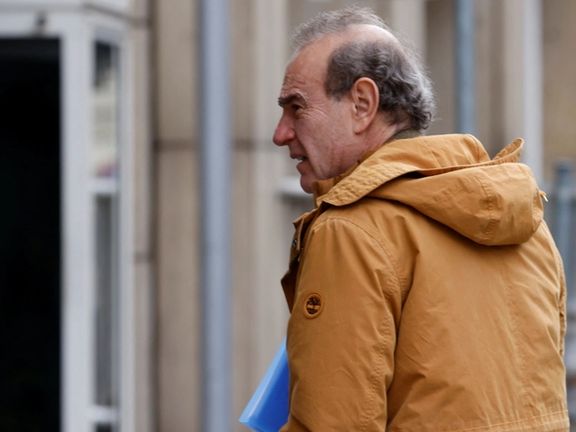
The European Union coordinator of the Vienna nuclear talks has reiterated that negotiations are at a crucial point with the result still uncertain.
“We are nearing the end after ten months of negotiations,” wrote Enrique Mora, a senior EU official, in a tweet Tuesday. All delegations were in intense talks, Mora noted, as “key issues need to be fixed” in agreeing the revival of the 2015 Iran nuclear deal, the JCPOA (Joint Comprehensive Plan of Action).
Stephanie Al-Qaq, the lead British negotiator in Vienna, tweeted that the talks were “in the end game,” and that it was “time for us to conclude.”
A positive note came from Mikhail Ulyanov, Russia’s lead negotiator. “Apparently the negotiations on restoration of the JCPOA are about to cross the finish line,” he tweeted after exchanging views with Mora on the current state of affairs.
Media interest in the Vienna nuclear negotiations has increased during recent weeks with reports that agreement was close. Tehran has called for the removal of all sanctions imposed under the ‘maximum pressure’ introduced by President Donald Trump as he withdrew the US from the JCPOA in 2018, but deciding which sanctions contravene the JCPOA has proved contentious.

While some diplomats say a nuclear deal with the West is likely within the next week, Iranian lawmakers have a feeling they have been left out of the process.
Some 250 Iranian lawmakers on Sunday called for a guarantee to ensure that the United States will not pull out of an agreement with Iran once again. They also demanded that all the sanctions against Iran should be lifted before any new agreement.
While foreign ministry spokesman Saeed Khatibazadeh also insisted on Monday that sanctions should be lifted, he pointed out that Iran's Supreme Council of National Security is the body that decides on the nuclear deal. The SCNS is believed to be a front for Supreme Leader Ali Khamenei who steers the negotiations from behind the scenes.
Also on Monday, reformist lawmaker from Tabriz Massoud Pezeshkian said that the Majles has not been informed of the details of the negotiations in Vienna at all, noting that everything about the negotiations is being managed by the SCNS.
Based on a December 2020 legislation that called for reducing Iran's commitments under the JCPOA, the Iranian negotiating team is required to brief the Majles on the talks from time to time. The legislation at the time was touted as putting a clear legal responsibility on the government to escalate the nuclear crisis. However, according to Pezeshkian, the Majles has been left in the dark and the negotiations are being furthered based on attestations made by the SCNS.
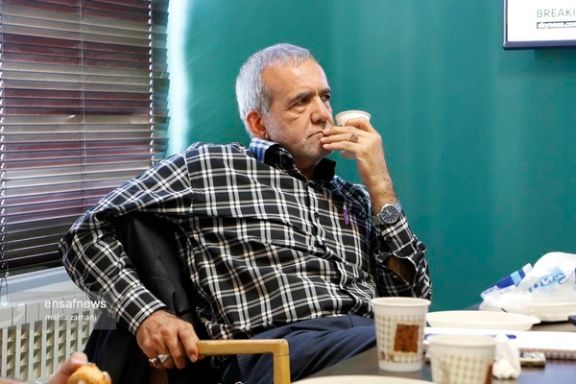
The legislation known as Strategic Action to Lift the Sanctions and Protect Iranian Nation's Interests, appears to have been totally ignored by the negotiators and the SCNS and this, according to Pezshkian, is against the law. "Now we should ask the lawmakers who defended and approved the legislation why the law was made and why the Majles has not been briefed about the results of negotiations," Pezeshkian said, adding that "The government and the foreign ministry do not tell us anything about the talks."
The prominent lawmaker added that even the foreign ministry is not aware of what is going on in Vienna. "They make all the decisions at the Supreme Council of National Security and then tell the foreign ministry to follow up on matters," Pezeshkian said. Nonetheless, he said it is unlikely that differences would occur between the Majles and the government as both bodies belong to the same part of the Iranian political landscape.
While a significant part of Iran's economic problems are related to United States’ sanctions, SCNS Chief Ali Shamkhani insisted on Monday that holding negotiations with the Washington is not on the agenda of the Iranian negotiating team. "Negotiation with US is not on the agenda of the Iranian team because it will not be the source of any progress," he said.
This comes while President Ebrahim Raisi who visited Qatar on Monday appears to have agreed with Doha's mediation between Tehran and Washington. Political commentators who have spoken to Iran International TV unanimously agreed that Qatar is playing a mediation role between Iran and the US particularly about a planned prisoner swap. Commentator Ali Sadrzadeh said that Qatar appears to have replaced Oman in the indirect negotiations between Tehran and Washington particularly about arranging a prisoner swap.
According to conservative Nameh News website, "both Iran and the United States need an agreement. The United States does not say that as elaborately as Iran does. Iran has to surrender to an agreement that fulfils its minimal expectations to put an end to its nation's financial hardships. As both sides need an agreement, it is likely that there will be one within a few weeks."
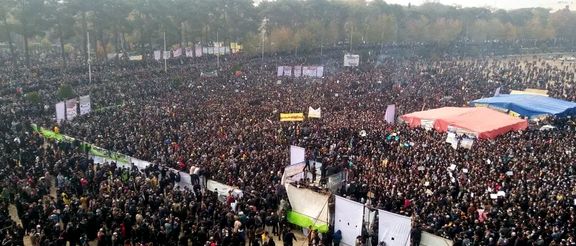
Eleven Iranian opposition groups have urged three European nations participating in nuclear talks with Iran to stop the negotiations with the Islamic Republic.
The letter, which was signed by Western-based secular and liberal groups opposed to the Islamic Republic, addressed the leaders of France, Germany, and the United Kingdom, calling on them to end “the failed and catastrophic policy of negotiating with and appeasing the Islamic Republic”.
They told Emmanuel Macron, Boris Johnson, and Olaf Scholz that the regime with which they are engaged in talks “is the same fundamentalist regime that since its inception 43 years ago, has had terror, hostage-taking, and sabotage, as an integral part of its ideology and nature, and its most important tools for blackmailing the free world”.
Diplomats have said that nuclear talks, which began last April to revive the 2015 nuclear agreement (JCPOA), have made significant progress and a final deal is imminent soon. In case agreement is reached, Iran is set to receive billions of dollars of blocked funds and massive sanctions relief.
The signatories highlighted that the “Islamist revolutionary regime has carried out hundreds of terrorist attacks around world”, emphasizing that it has engaged in killings, bombings, and hostage taking, as well as issuing fatwas (decrees) for murder of innocent people.
This is “the same inhumane, misogynist, and anti-LGBTQ oppressive regime that, despite decades of attempts at dialogue and resolutions by the international community, still enforces medieval Sharia law,” which includes stoning, amputation, and flogging, the letter read.
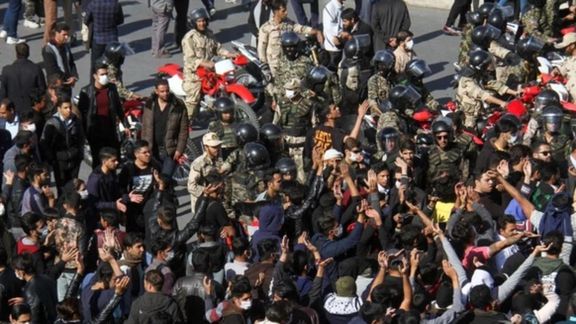
The opposition groups stressed that the clerical government “carries out large-scale executions and imprisonments, often with the aim of suppressing and silencing political opponents”.
The Islamic Republic soon after its establishment cracked down on opposition and independent groups and has continued to ban civil society initiatives. Practically all opposition has been sent into exile or imprisoned.
They criticized the policy of the West, especially Europe, towards “this anti-Semitic regime,” saying “appeasement and the payment of ransoms in order to normalize and attempt to change the behavior of this inherently abnormal regime” have only emboldened it “in its terrorist activities, criminality, and nuclear and military ambitions”.
The signatories highlighted Iran’s track record of “insolence on the international stage and criminal suppression of the people”, stating that “Nearly two decades of counterproductive negotiations and flawed deals such as the JCPOA have only given the Islamic Republic a chance to buy time. By deceiving the international community, it has brought its nuclear and ballistic missile programs to an irreversible stage”.
Then opposition groups called for action, urging the three European powers “to put aside, once and for all, the failed and catastrophic policy of negotiating”, saying that now when the Islamic Republic is at the lowest level of popular legitimacy in its history it “is the time to choose another policy: Maximum support for the Iranian people to end more than four decades of medieval rule and replace it with a secular democratic system that serves Iran's national interests through peaceful coexistence and cooperation with neighbors and all countries in the world”.
“This is the only way to prevent the world's largest terrorist state from achieving the atomic bomb -- a catastrophe that will plunge the entire region into a nuclear arms race”, they wrote.
They asked the European leaders that instead of the Vienna talks they should “enter into a serious and effective dialogue with the democratic and national opposition of Iran, which wants a free and secular Iran”.
“Sooner or later, the Islamic Republic will be overthrown by the brave and courageous people of Iran, and the day after liberation, the Iranian people will remember who stood by them in difficult times and who aided their oppressors”, they concluded.